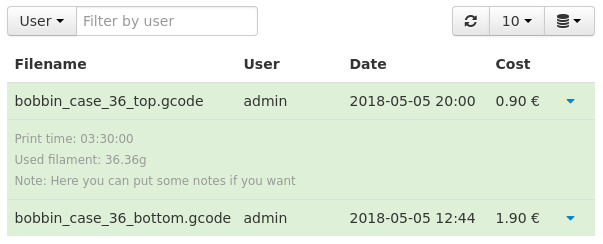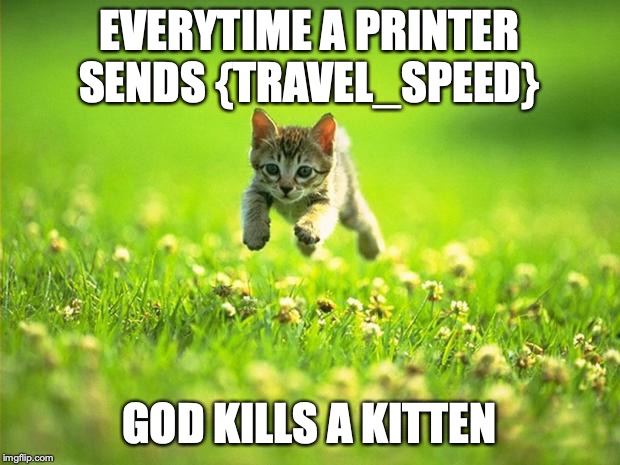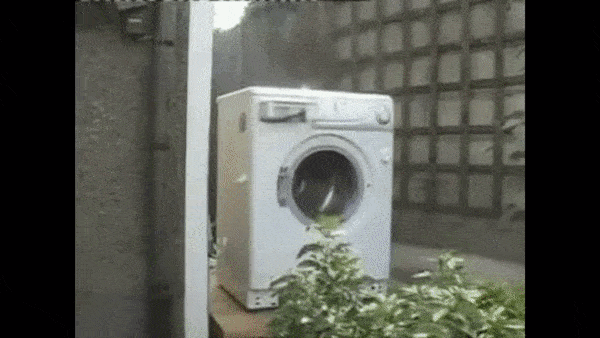Seems the plug is now dying after a recent upgrade:
2019-08-18 01:04:30,844 - octoprint.plugin - ERROR - Error while calling plugin printhistory
Traceback (most recent call last):
File "/home/pi/oprint/local/lib/python2.7/site-packages/octoprint/plugin/init.py", line 219, in call_plugin
result = getattr(plugin, method)(*args, **kwargs)
File "/home/pi/oprint/local/lib/python2.7/site-packages/octoprint_printhistory/init.py", line 146, in on_event
return eventHandler.eventHandler(self, event, payload)
File "/home/pi/oprint/local/lib/python2.7/site-packages/octoprint_printhistory/eventHandler.py", line 46, in eventHandler
parameters = gcode_parser.parse()
File "/home/pi/oprint/local/lib/python2.7/site-packages/octoprint_printhistory/parser.py", line 28, in parse
parameters = self.parser_factory.parse(self.file)
File "/home/pi/oprint/local/lib/python2.7/site-packages/octoprint_printhistory/parser.py", line 41, in parse
parameters.update(self.parse_bottom(gcode_file))
File "/home/pi/oprint/local/lib/python2.7/site-packages/octoprint_printhistory/parser.py", line 90, in parse_bottom
config.readfp(io.BytesIO(settings))
File "/usr/lib/python2.7/ConfigParser.py", line 324, in readfp
self._read(fp, filename)
File "/usr/lib/python2.7/ConfigParser.py", line 512, in _read
raise MissingSectionHeaderError(fpname, lineno, line)
MissingSectionHeaderError: File contains no section headers.
file: <???>, line: 1
'{"extruder_quality": ["[general]\n'
2019-08-18 01:04:30,985 - octoprint.util.comm - ERROR - Error while processing hook DisplayLayerProgress for phase sending and command G1 Z+0.5 E-5 X-20 Y-20 F{travel_speed}:
Traceback (most recent call last):
File "/home/pi/oprint/local/lib/python2.7/site-packages/octoprint/util/comm.py", line 3220, in _process_command_phase
hook_results = hook(self, phase, command, command_type, gcode, subcode=subcode, tags=tags)
File "/home/pi/oprint/local/lib/python2.7/site-packages/octoprint_DisplayLayerProgress/init.py", line 249, in sendingGCodeHook
self._updateDisplay(UPDATE_DISPLAY_REASON_FEEDRATE_CHANGED)
File "/home/pi/oprint/local/lib/python2.7/site-packages/octoprint_DisplayLayerProgress/init.py", line 442, in _updateDisplay
feedrate = self._calculateFeedrate(self._feedrate)
File "/home/pi/oprint/local/lib/python2.7/site-packages/octoprint_DisplayLayerProgress/init.py", line 560, in _calculateFeedrate
newFeedrate = float(feedrateFactor) * float(feedrate)
ValueError: could not convert string to float:
Anyone able to fix this or is there an update on the replacement plugin?
TIA





